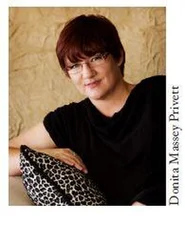The Batchelors. How memories of the family came back to him now across seven decades. His own family had lived in Brook Road and the Batchelors in Tycehurst Hill. Stanley had had a dog called Nipper. Amazing to remember that. One of Stanley’s brothers, the youngest perhaps, was called Norman and he used to boast about being born on the kitchen table. The address on the letter was Theydon Bois. So Stanley hadn’t moved far from Loughton, or if he had, had come back again. There was an email address as well. Most people of their sort of age didn’t send emails, hardly knew what an email was. The last line of the letter, before the bit about ‘deepest sympathy’, read, If you haven’t thought about this neck of the woods for years, the newspaper stories about Warlock will have brought it back to you. An extraordinary business. It would be good to meet sometime if you feel like it.
Death, thought Lewis, was something that brought old friends, long separated, back together. He had liked Stanley Batchelor very much when they were children. Would he like him now? Like or not, he was the very person with whom to discuss if not the Warlock business, the place they’d called something strange – what was it? – yes, the qanats. He couldn’t remember why. That and something else which, though it had never troubled him, never come near to making him unhappy, had been there on the edge of his consciousness ever since he was not much older than the age he had been when he and Stanley Batchelor had been friends. It had bothered his mother. She and Uncle James – no one ever called him Jim – had been close all their lives, though she was seven years older than he. Perhaps because she was seven years older and, as was common in the twenties, had had to look after him when she was a big child and he four years old.
Lewis had often thought about Uncle James. When they were first married he had told Jo about him, and his curious disappearance.
‘He got killed in the war, didn’t he?’
‘For that to have happened he would have to have joined up, and it seems he didn’t.’
‘It doesn’t much matter now,’ said Jo.
‘It matters to me and to Mum. He just disappeared.’
‘I read somewhere that lots of people did. They were in houses that got bombed. Or they were drafted to work in mines and got buried.’
He said no more. He knew it hadn’t been like that. Uncle James had been staying with them in Brook Road, and while he was there he seemed to join the army. Up till then he’d been unfit on account of having some minor thing the matter with him, a badly fallen arch on his left foot. On a second try they took him. He was going to go home to London, where he lived with an aunt and uncle, but he never got there. His uncle tried to trace him. James hadn’t told him where he would be stationed, that wouldn’t have been allowed, but he did have the names of two men he would be starting his training with, and their addresses. Both of them replied. They had never heard of Private James Rayment. The army had never heard of him, though he’d said he had joined up. Efforts to find him had failed. He had disappeared.
That was sixty years and more ago and Uncle James had never been heard of since. As Jo said, people disappeared in wartime. It was a good time to change your identity or vanish or hide from authority. In those days you had an identity card and you had a ration book but that was all. No bus passes, no credit cards, no mobile phones; since you never drove, no driving licence, probably no bank account. You were free. Free to hide, free to be someone else, free to disappear. Lewis’s family did all they could to find Uncle James but they failed. After a time his disappearance mattered less, receded into a sort of semi-oblivion. It wasn’t as if he had died but rather as if he had gone a long way off, perhaps to live on some distant continent where no one ever went. Perhaps he had. People did very rarely go to those places, but sending airmail letters was troublesome and the cost of phoning was prohibitive. Uncle James might have tried to phone but failed to get through, as often happened.
Lewis’s mother clung to a belief that he would one day turn up out of the blue and present himself on her doorstep. James had often stayed with them in Brook Road, and Gwen Newman, looking back over the past couple of years, now remembered that while there, her brother had gone out a lot in the evenings. Not every evening, but often, and she had had a feeling that he only stayed in with her and her husband and Lewis because it was expected of him as a guest. When James couldn’t be found, she remarked on this behaviour, and what she said had stayed with Lewis all these years.
‘I should have asked him where he was going but I couldn’t bring myself to do that. After all, he was a grown man. He used to get back very late, or I suppose he did. I was always asleep.’
‘Now you mention it,’ said Lewis’s father, ‘I heard him come in after midnight once or twice.’
‘I did ask him once if he’d had a nice evening but he only said “Lovely, thanks” and didn’t tell me any more.’
‘I sometimes wondered why he wanted to stay with us. It must have been rather dull with nothing to do in the evenings.’
‘He had something to do,’ said Gwen. ‘A girlfriend. A woman. He’s gone off with her and maybe she was married. That’s why he never told us.’
Theydon Bois was one of those suburbs in Surrey or Essex or Hertfordshire on the edge of London. The tube went to Theydon. It was desirable commuter land with shops, big and small houses, a village green, and it was in Epping Forest. Unfortunately, you could hear the distant roar of the motorway, the M25, not yet built when Stanley first lived there in the sixties. Thinking themselves clever and polyglot, visitors pronounced its name Theydon Bwah, but ‘Boys’ was correct.
Stanley and George, Batchelor Brothers, had built several of the houses in Theydon, and Stanley and Helen lived in one of the larger detached ones. Stanley had bought it when his children left home, his first wife died and he married a woman twenty years younger than himself. When he had written back to Lewis Newman and invited him to lunch, Stanley had supposed he would drive, but Lewis, who had given up his car six months before Jo’s death, chose the tube. Ealing was at one end of the Central Line and Theydon at the other, so he could sit in the train for an hour or more reading one of his favourite and frequently reread books, The Count of Monte Cristo.
Stanley met him at the station with Spot on the lead. Much to Spot’s dismay, they sat down on a seat outside the Bull, because Lewis wasn’t a great walker.
‘Quite like being in the countryside,’ he said.
‘We are in the countryside.’
This was answered by a half-smile from Lewis and a shrug of his arthritic shoulders. ‘My brother George is coming to lunch,’ said Stanley. ‘He’s looking forward to seeing you again.’
George was the only one of the Batchelors Lewis hadn’t liked. Too bossy and go-ahead.
‘He’s recovering from a hip replacement.’
‘It comes to us all,’ said Lewis the GP, trying to be generous.
‘Not to me, I trust. I try to keep all that sort of thing at bay by regular walks with Spot.’
George had already arrived and was seated in an armchair, his leg up and his stick beside him. His big black Audi, driven by Maureen, was on Stanley’s garage drive and she was in what Stanley called ‘the lounge’, drinking sherry with Helen, a woman in her fifties with silvery blonde hair, wearing dark green leather trousers and a red satin blouse.
‘We built this house, you know,’ said George when Helen had handed sherry to Lewis.
‘And you built Warlock,’ said Lewis. ‘You didn’t put those hands in the foundations, I hope.’
Читать дальше












